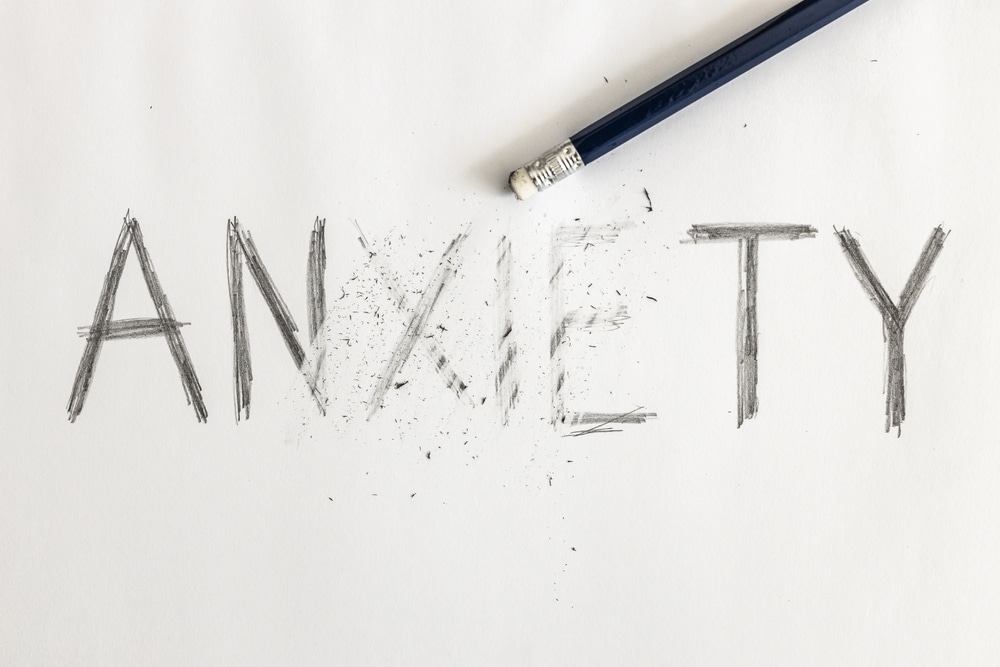Anxiety is a normal human response that ensures our survival, but chronic anxiety can interfere with one's ability to live a productive and happy life. Anxiety can impede one's ability to leave their home, develop meaningful connections with others, or function effectively in the workplace.

What is Anxiety?
In the most basic terms, anxiety is a feeling or worry that is out of proportion to a given situation. Cues to anxiety may be feeling out of control or receiving unexpected news. The sensations may subside once we become comfortable or remove ourselves from the environment. However, people with chronic anxiety feel uneasy in most situations, even when they are alone. They may dwell on memories or concerns about the future. A person who suffers from anxiety may feel paralyzed in select moments or in every area of life.
What are the Signs of Anxiety?
Generalized anxiety disorder (GAD) is a condition in which feelings of worry and concern affect a person's ability to function. People who have GAD symptoms may experience the following:
- Chronic exhaustion and fatigue
- Challenges with sleep
- Chronic migraines and headaches
- Restlessness and inability to relax
- Irritability
- Excessive worry/fear
- Difficulty focusing and concentrating
- Fast heart rate
- Lightheadedness
- A person with chronic anxiety may also have a panic disorder that causes chest pains, hyperventilation, and other somatic complaints.
What are the Risk Factors for Anxiety?

A family predisposition to mental health symptoms and stressors throughout one's childhood can influence one's development of anxiety in the future. The use of substances can also influence anxiety symptom presentation.
What Treatment is Available for Anxiety?
You may come to our facility already experiencing the effects of anxiety in your life. Our mental health therapists monitor your progress and intervene as needed. We will help you understand your symptoms and help you develop ways that you can manage life without triggering an anxiety response. Treatment will include therapy, and we may also recommend anti-anxiety medications. Identifying the fears behind your anxiety may release you from the grip of these mental health symptoms and allow you to use skills to decrease symptoms related to anxiety.
Anxiety is typically treated with a combination of medication and psychotherapy, including:
Take the Step!
Don't let anxiety-related symptoms negatively impact your life any longer. Call 720-295-6703 or click here to submit a request for a 20-minute initial consultation call with us to get started on your path to recovery.
Anxiety FAQs
What is an anxiety attack?
An anxiety attack is characterized by feelings of overwhelming apprehension, worry, distress, or fear. For many, this can feel suddenly intense and may be triggered by specific stressors or occur unexpectedly. Physical symptoms often include heart palpitations, shortness of breath, dizziness, sweating, trembling, and a feeling of loss of control or impending doom.
Can you have symptoms of anxiety without feeling anxious?
Yes, it's possible to experience physical symptoms of anxiety without a conscious feeling of anxiety. These can include muscle tension, headaches, gastrointestinal problems, or insomnia, which might not initially be linked to anxiety by the person experiencing them.
How do I know if my anxiety needs to be treated? Is there normal anxiety?
While mild and moderate anxiety can be a normal and even healthy reaction to stress, it may need treatment when it is persistent, excessive, and impacts daily functioning. Signs that you might need professional help include persistent worry, physical symptoms like insomnia or digestive issues, and difficulty managing daily tasks and relationships.
What impacts can anxiety (chronic or otherwise) have on my life?
Chronic anxiety can significantly affect various aspects of life, including mental and physical health, relationships, and work performance. It can lead to social withdrawal, depression, and may increase the risk of health issues such as cardiovascular disease. Recognizing and treating anxiety is crucial to improving quality of life and preventing long-term consequences.
What is the best way to treat children with anxiety disorders?
Treatment for children with anxiety disorders should be comprehensive and adaptable to each child's needs. Cognitive-behavioral therapy (CBT) is commonly used and effective, focusing on changing specific thoughts and behaviors. Family therapy and educational support can also play a crucial role in treatment. In some cases, medication may be recommended under careful medical supervision.
If there is a difference between anxiety symptoms in men and women? What are some of the anxiety symptoms in women?
Yes, anxiety can affect men and women somewhat differently. Women may experience anxiety symptoms that include physical symptoms like palpitations, increased heart rate, or fatigue. They are also more likely to report symptoms such as nervousness, rapid breathing, and difficulty concentrating. Additionally, women might experience anxiety more intensely and may have more frequent episodes of acute stress and panic attacks.
How do I know if I'm having a panic attack?
Panic attacks involve sudden and intense periods of fear or discomfort that escalate within minutes. Symptoms include palpitations, pounding heart, or accelerated heart rate; sweating; trembling or shaking; sensations of shortness of breath or smothering; feelings of impending doom; and feelings of being detached from oneself. Recognizing these symptoms can help you seek appropriate intervention.
Why should you choose Revitalize for anxiety treatment?
At Revitalize Mental Health, our approach combines expertise, experience, and empathy to create a tailored treatment plan for each patient. Our team consists of highly trained mental health professionals who specialize in anxiety disorders. We ensure continuous support and offer various therapeutic modalities to suit your personal needs. For more information or to schedule an appointment, you can contact us directly through our website or by calling our office at 720-295-6703.




